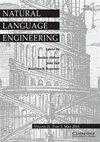基于神经网络的韩语二语写作评价
IF 1.9
3区 计算机科学
Q3 COMPUTER SCIENCE, ARTIFICIAL INTELLIGENCE
引用次数: 4
摘要
虽然近年来韩语教育发展迅速,一些研究也对自动写作评估(AWE)系统进行了研究,但对韩语第二语言写作的AWE系统仍未进行探索。因此,本研究旨在开发并验证一种可广泛应用于韩国语教与学的神经模型AWE系统。基于韩语学习者语料库,拟议的AWE使用自然语言处理技术(如词性标注、句法分析和统计语言建模)开发,以设计语言特征和预训练的神经语言模型。本研究试图确定神经网络模型如何使用不同的语言特征来提高AWE性能。实验结果表明,神经AWE系统对语料库中未见的测试数据具有较高的可靠性,这意味着AWE系统中使用的指标可以帮助区分不同的熟练程度并预测整体分数。此外,研究结果证实,提出的语言特征——句法复杂性、数量复杂性和流畅性——为神经自动写作评估提供了补充。本文章由计算机程序翻译,如有差异,请以英文原文为准。
Neural automated writing evaluation for Korean L2 writing
Abstract Although Korean language education is experiencing rapid growth in recent years and several studies have investigated automated writing evaluation (AWE) systems, AWE for Korean L2 writing still remains unexplored. Therefore, this study aims to develop and validate a state-of-the-art neural model AWE system which can be widely used for Korean language teaching and learning. Based on a Korean learner corpus, the proposed AWE is developed using natural language processing techniques such as part-of-speech tagging, syntactic parsing, and statistical language modeling to engineer linguistic features and a pre-trained neural language model. This study attempted to determine how neural network models use different linguistic features to improve AWE performance. Experimental results of the proposed AWE tool showed that the neural AWE system achieves high reliability for unseen test data from the corpus, which implies metrics used in the AWE system can help differentiate different proficiency levels and predict holistic scores. Furthermore, the results confirmed that the proposed linguistic features–syntactic complexity, quantitative complexity, and fluency–offer benefits that complement neural automated writing evaluation.
求助全文
通过发布文献求助,成功后即可免费获取论文全文。
去求助
来源期刊

Natural Language Engineering
COMPUTER SCIENCE, ARTIFICIAL INTELLIGENCE-
CiteScore
5.90
自引率
12.00%
发文量
60
审稿时长
>12 weeks
期刊介绍:
Natural Language Engineering meets the needs of professionals and researchers working in all areas of computerised language processing, whether from the perspective of theoretical or descriptive linguistics, lexicology, computer science or engineering. Its aim is to bridge the gap between traditional computational linguistics research and the implementation of practical applications with potential real-world use. As well as publishing research articles on a broad range of topics - from text analysis, machine translation, information retrieval and speech analysis and generation to integrated systems and multi modal interfaces - it also publishes special issues on specific areas and technologies within these topics, an industry watch column and book reviews.
 求助内容:
求助内容: 应助结果提醒方式:
应助结果提醒方式:


